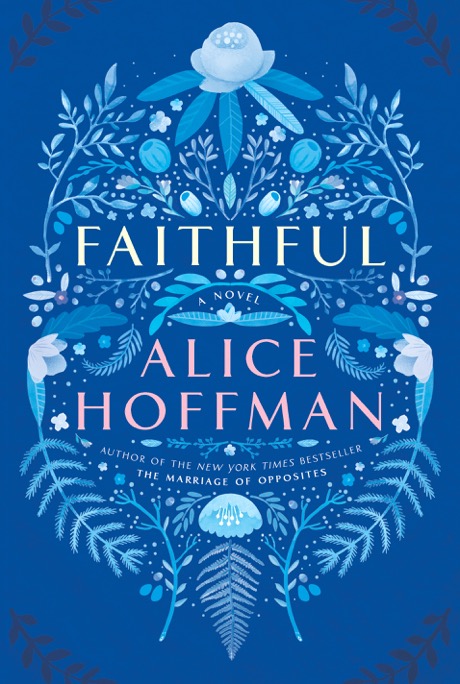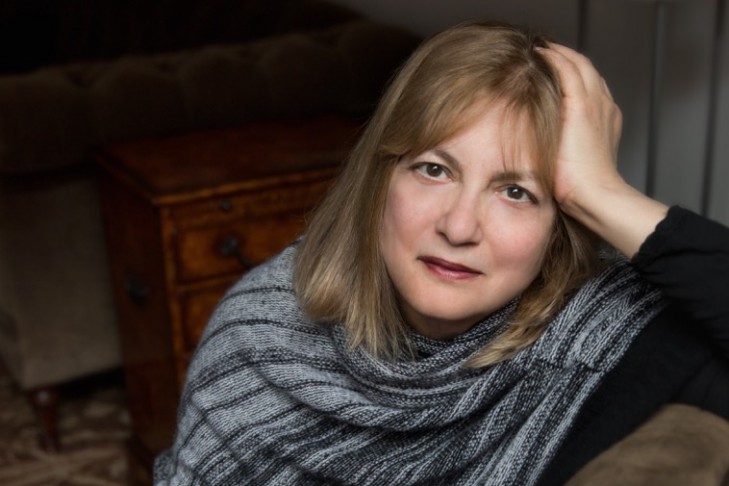After more than 30 books, which include two short story collections and seven books for children and young adults, Alice Hoffman continues to engage and delight her readers. Her books are often bestsellers and have been translated into more than 20 languages. Her work, which has been an Oprah’s Book Club selection, has also made it to the big screen. Her novel “At Risk,” a book that grappled with AIDS, was published in 1988 at the height of the epidemic and is required reading in many high schools and colleges.
Hoffman is also a breast-cancer survivor who established The Hoffman Breast Center at Mount Auburn Hospital in Cambridge with the advance from her 1999 short story collection “Local Girls.” She continues to support the center, as well as recruit other prominent writers for fundraising events.
Her newest novel, “Faithful,” will be released next week, and on Wednesday, Nov. 2, she will be reading and discussing the book at the Vilna Shul in Boston. “Faithful” has many of Hoffman’s familiar tropes: resilient women, natural-born survivors, strong female relationships, landscapes that reflect her characters’ moods, romantic love and even a dash of magic and the supernatural.

Hoffman recently answered questions for JewishBoston about her new book, her life as a writer and her Jewish grandparents’ influence on her work.
Your novels have encompassed everything from magical realism to historical fiction. And your last few novels have taken on overt Jewish themes. How and why did that shift take place?
I was always interested in the stories my Russian grandmothers told me. When I did research for an article about the Triangle Shirtwaist Factory fire, I realized that my grandpa had been involved in the International Ladies’ Garment Workers Union, so the story became personal, which led me to writing “The Museum of Extraordinary Things.” When my son went to Israel as an archaeologist, I became interested in ancient history, which led me to writing the “The Dovekeepers.”
Your new novel, “Faithful,” has an evocative title. What role does faith play in this story?
Faith plays a huge role in the story. In many ways it’s a story about a mother and daughter, and I’ve always felt that if one person has faith in you, you can make it through whatever tough times you face.
Shelby Richmond, the protagonist in “Faithful,” is a resilient young woman. Does her resiliency constitute a form of faith?
Yes. I think she’s more resilient than she knows, and part of the story is how she finds out who she really is.
I read that your Jewish grandparents influenced your notions of survival as a kind of fairytale. Your characters are the ultimate survivors. How does that concept of survival relate to your own life story as a writer and breast-cancer survivor?
I think most writers discover after time that they have a theme. My theme is definitely survivorship. Whether it’s writing about Masada or my own personal struggles with cancer, that’s the theme that came to me. It may be because of my grandparents, whom I so admire and respect, who came to this country with nothing and who managed to survive and flourish.
The late Grace Paley is your literary hero. She also headlined one of your fundraising events for Mount Auburn Hospital. How has she influenced your work and life?
I read Grace Paley as a graduate student, and she influenced me hugely. She was such a brilliant writer and such an amazing person. I love the voice in her stories and only wish she had written more for us.
What kinds of services are offered at the Hoffman Breast Center?
The Hoffman Breast Center is a state-of-the-art center. No patient is turned away, and I’m very proud to have been involved with it for many years as it serves the community of Cambridge and beyond. It’s been a pleasure to give something back to the hospital, which saved my life.
You’ve described yourself as a “Hebrew-school dropout.” What role does Judaism play in your work and your life?
I was a Hebrew-school dropout, which I now regret because there are so many more stories I could have learned!
You’ve been quoted saying that your stories just come to you. What is your writing process?
My process changes with every book. Usually I do several drafts, and when I’m doing research I do several go-rounds of research. I’m a big believer in revision.
Please share anything else you think JewishBoston readers might like to learn about you and your work.
I think it’s really important to remember family stories and to incorporate your history into fiction. I’ve been especially interested in the stories of women who are not able to tell their own stories. I’m hoping my novels have helped to do that.
This post has been contributed by a third party. The opinions, facts and any media content are presented solely by the author, and JewishBoston assumes no responsibility for them. Want to add your voice to the conversation? Publish your own post here. MORE



